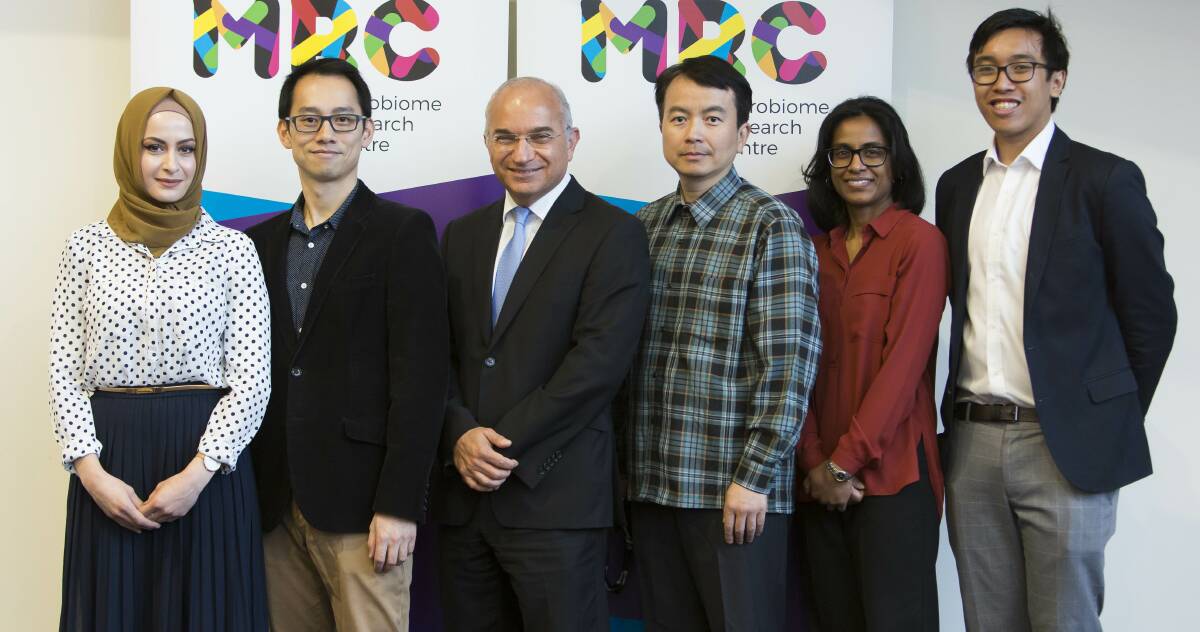
This year promises to be an exciting one for researchers at St George and Sutherland Hospitals with the establishment of the Microbiome Research Centre (MRC).
In 2017 the St George and Sutherland Medical Research Foundation celebrated its 10th anniversary.
The Foundation also secured a grant from the Federal Government to support core research personnel and the refurbishment of a suite of laboratories in the Research and Education Building at St George Hospital. Most importantly, in October 2017, six research teams were awarded the inaugural MRC Grants.
Improved understanding of the microbiome is the most exciting development in medicine over the past decade and it impacts on all aspects of health and disease.
Emad El-Omar, Professor of Medicine UNSW and MRC Director, says the research agenda will focus on the role of the microbiome in clinically relevant health problems that affect the Australian population.
Though physically located at St George Hospital, the MRC will act as a hub of internationally competitive research rallying together multi-disciplinary research groups at St George and Sutherland hospitals.
In addition, the MRC will establish collaborations with research groups and clinical campuses across NSW, other states within Australia and with international groups across the world.
According to Professor El Omar the region has one of the biggest health and medical precincts in Australia, combining public and private hospitals and suites and services, which means this project will add major health, economic and employment value.
The MRC will act as a magnet attracting gifted researchers from across the world and will offer unrivalled opportunities for training and inspiring the next generation of researchers in medicine and allied health specialties.
The human gut is a unique niche that is home to trillions of microbes known as microbiota.
The “microbiome” constitutes the collective genomes (genetic codes) of all the microbiota. Almost every system in the body is influenced by the microbiota and exciting new research suggests that our health and wellbeing are dependent on having a diverse, balanced and healthy microbiota.
Disturbance or “dysbiosis” of this balance can lead to a wide group of diverse diseases that include obesity, metabolic syndrome, diabetes, cardiovascular and cerebrovascular disease, inflammatory bowel disease and several cancers. A central theme that runs through all these diverse diseases is chronic inflammation, which is a consequence of the dysbiosis.
One of the most important determinants of a healthy microbiota is diet. In circumstances where the host consumes a healthy diet (for example, rich in fresh fruits, vegetables and low on animal-derived fat and protein), that healthy balance is maintained.
However, a poor diet (rich in animal protein and fat and high on refined sugars) has been associated with dysbiosis and the proliferation of potentially harmful bugs. Other causes of dysbiosis include excessive use of antibiotics, lack of physical activity, use of certain drugs and smoking.
St George and Sutherland hospitals serve a large and diverse population that has significant health care demands. Our population suffers particularly from modern western diseases such as obesity and its metabolic complications including diabetes, cardiovascular and cerebrovascular disease. There is also a substantial cancer, mental health and inflammatory disease burden. All these diseases have been shown to be directly linked to abnormalities in the microbiota.
The MRC grant recipients are currently studying the effect of the microbiome in pregnancy, bowel cancer, head and neck cancer, clotting and thrombosis, systemic lupus erythematosus (SLE) and inflammatory bowel diseases (IBD).
The foundation has come a long way over the past decade and the Microbiome Research Centre will be a flagship for medical research at St George Hospital, providing a hub for collaboration between the medical researchers at both St George and Sutherland Hospitals.
I am looking to the community and local businesses to support the St George and Sutherland Medical Research Foundation and ensure we create a world-class research centre in our local hospital.
St George and Sutherland Medical Research Foundation CEO Jacquie Stratford
- For more information or to donate to medical research contact Ms Stratford on 9098 4040, email ceo@ssmrf.com.au or go to the website SSMRF.com.au

